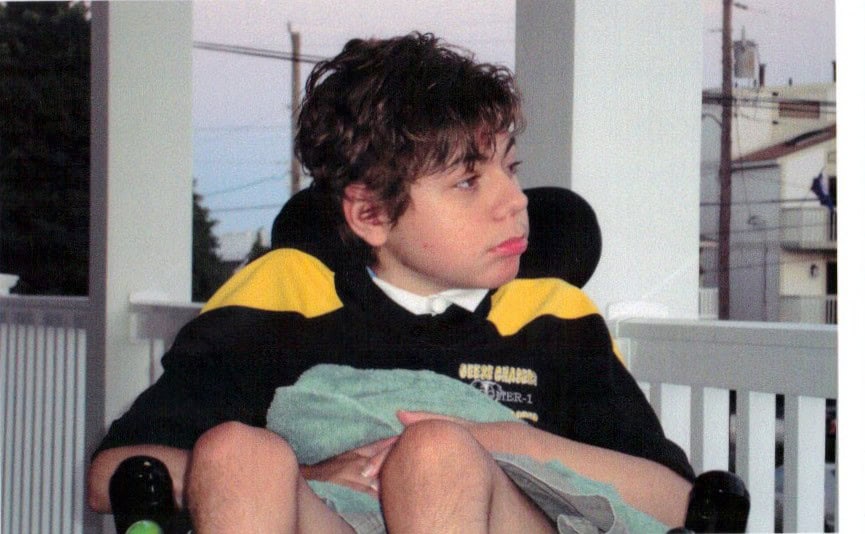
The nonprofit organization will host its 11th annual Steps for Seizures fundraiser on Nov. 4

Clayton Myers went to sleep on Oct. 15, 2004, as a typical young boy in Washington Township, but when he woke up, his life, and his family, would be changed forever. After contracting a virus, which ultimately spread to his brain, Clayton experienced years of chronic seizures, and was ultimately diagnosed with epilepsy. In his honor, his mother Shelby and his family created the not-for-profit organization Clayton’s Hope.
When Clayton was in first grade, his parents found him motionless in bed after coming down with the average back-to-school virus. When rushed to the intensive care unit of the Children’s Hospital of Philadelphia, where he stayed for about five and half months, he was placed in a medically induced coma in hopes of subsiding his uncontrollable seizures.
After trying countless medications and operations, Myers said, Clayton’s family made the decision to bring him home, accompanied by nursing staff, and enter him into the HollyDELL School, a private, special needs school in Washington Township. At the time, Clayton had a neurological level of a toddler.
“In 2006, we had started to do some research into epilepsy because no one in our family had ever had epilepsy and we didn’t know anything about seizures,” Myers said. “We tried to get information and there wasn’t really anything out there locally. I was appalled at the lack of research, and funding for research, so I started Clayton’s Hope.”
In 2012, the virus came back and the Myers family’s options were limited. On Aug. 4, 2012, Clayton passed away in the comfort of his home.
“I came up with the name because, №1, I know it would be Clayton’s hope that nobody would ever have to live like he did. №2, I thought it would be Clayton’s only hope, in the sense that nothing was being done research-wise,” Myers said. “No other child should have to live like this, and just to see what my son went through, I don’t want any other child to have to live like this.”
The organization will be hosting its 11th annual Steps for Seizures 5K fundraising and awareness event on Nov. 4 in Washington Lake Park, originally created by Clayton’s sister, an avid runner who wanted to help. Last year, the event saw more than 600 registrants walk, with virtual walkers from North Jersey to Australia.
“Our premise for the walk was we wanted it to be a celebration for people living with epilepsy everyday in their lives,” Myers said, “and that it would raise funds, but more so it would promote awareness and bring education for people in attendance.”
To date, the family-run organization has given more than $150,000 to epilepsy research, from clinical trials to establishing the first-ever epilepsy research laboratory at CHOP, Myers said. Most recently, the organization funded a clinical trial at CHOP for $50,000.
Myers said rather than donating, Clayton’s Hope meets with researchers to select the specific studies and clinical trials they want to help, and provides money similar to grants to fund the projects.
“We want the public, as well as ourselves, to know where those funds are actually going because they put their efforts into aiding our organization,” Myers said.
According to Myers, the premise of Clayton’s Hope is to create awareness and education about epilepsy and the need for research, while also raising funds for research to implement new programs and avenues for seizure relief, if not find a cure for the disorder altogether.
According to Clayton’s Hope website, www.claytonshope.com, more than 50 million people worldwide and more than 3 million individuals in the U.S. suffer from epilepsy, a disorder which may occur as a result of a genetic disorder or brain injury, as well as unknown causes.
“There are a multitude of types of seizures and there’s reasoning for them, but some are idiopathic, meaning there is no reason as to why someone develops epilepsy,” Myers said. “Between one and 10 people will develop a seizure at some point in their lifetime. With the current medication, there are still people who are resistant to epilepsy medication and not getting seizure control out there.”
Myers said although the number of epilepsy cases each year continues to grow, with more than 300,000 new cases reported annually in the U.S., there is a severe lack of funding. Therefore, support of grassroots efforts, such as Clayton’s Hope, is pivotal.
“At one point in our lives, epilepsy didn’t affect us either, and it didn’t affect our son,” Myers said. “Epilepsy isn’t just something you hear about on the news, or read about in the newspaper; it happens, and it happened to somebody in Township; it can happen to anyone.”
Registration for Steps for Seizures will begin at 9 a.m., and costs $15 per person. The walk will begin at 10:30 a.m., featuring complimentary raffles, face painting, entertainment and awards.
For more information, email Myers at [email protected]. To learn more about Clayton’s Hope, visit www.claytonshope.com or the Clayton’s Hope Facebook page.









